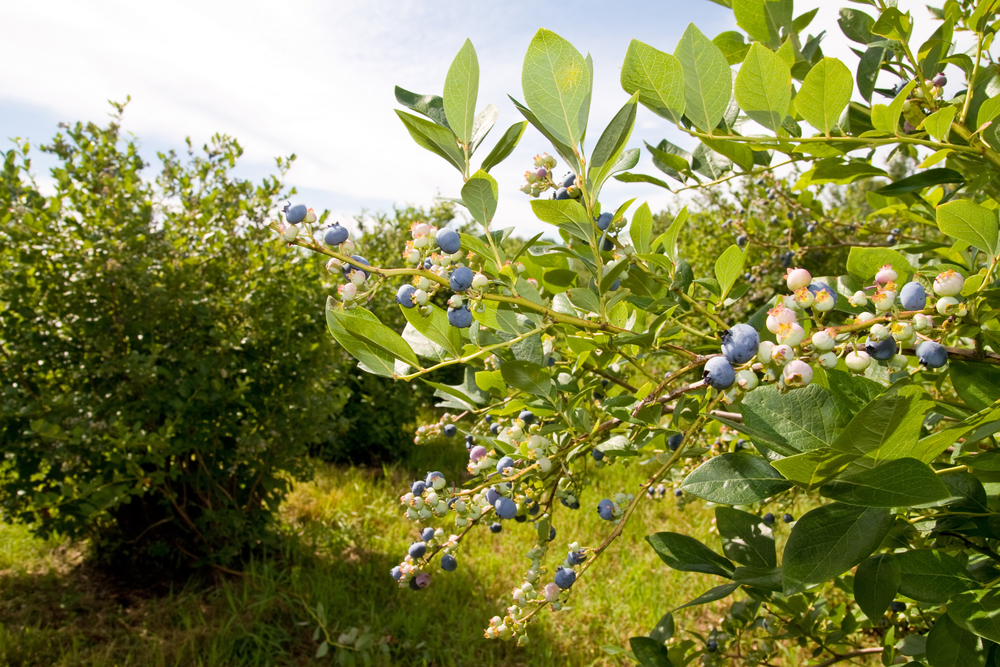Blueberry specialists at the University of Florida Institute of Food and Agricultural Sciences (UF/IFAS) remind growers about management options they need to be mindful of during October. Producers should monitor and manage leaf diseases, especially in evergreen systems. It is important to scout for algal stem blotch and selectively prune out canes infected with algal stem blotch, Botryosphaeria stem blight …
Aftermath of Freeze on Georgia Blueberries
By Clint Thompson The aftermath of last spring’s freezing temperatures on Georgia’s blueberry crop was devastating. Crops were lost. Revenue that was counted on was never realized. Estimates were that more than 54 million pounds were lost as a result of the March 12-13 freeze event. The crop loss affected more than just growers themselves. Chris Butts, executive vice president …
UF Study Shows ‘Aromatic’ Blueberries Taste Better
They may be called “aromatic” blueberries, but they don’t just smell nice — they taste good. University of Florida Institute of Food and Agricultural Sciences (UF/IFAS) scientists now know why: These fruits contain just the right genetic combination to produce the chemistry required for a pleasant blueberry flavor. Growers and consumers always seek better-tasting fruit, compelling blueberry breeders like Patricio …
Storms’ Impact on Blueberries
By Clint Thompson Last weekend’s heavy rains in South Florida reminds the state’s blueberry producers the vulnerability of their crop during hurricane season. The combination of strong winds and prolonged rain showers provide a threat to blueberries, says Doug Phillips, University of Florida Institute of Food and Agricultural Sciences (UF/IFAS) blueberry Extension coordinator. “It depends on whether we get wind, …
Extreme Weather Conditions: Georgia’s Vidalia Onions, Blueberries Impacted
By Clint Thompson Two of Georgia’s top specialty crops were impacted significantly by extreme weather events this spring; one positively and one negatively. Pam Knox, University of Georgia Extension Agricultural Climatologist, described the impact that the current dry conditions have had on onion harvests and the spring freeze events on the state’s blueberry crop. “The onion harvests this year, of …
What To Do About Anthracnose Fruit Rot in Blueberries
By Philip Harmon and Doug Phillips Anthracnose fruit rot (AFR), also known as ripe rot, is a significant disease on southern highbush blueberries. Caused by the fungal pathogen Colletotrichum gloeosporioides on southern highbush blueberries in Florida, AFR creates sunken lesions on the surface of blueberries. This is followed by eruptions of orange- or salmon-colored spores from the lesions when the …
Freeze Event was ‘Gruesome’ for Blueberries
By Clint Thompson The freeze event during the March 12-13 weekend wiped out at least half of Georgia’s blueberry crop this season, according to early estimates. More than 54 million pounds of blueberries were lost when temperatures dropped into the 20s on that fateful Sunday morning. Temperatures were as low as 26 degrees Fahrenheit in Alma, Georgia on March 13, …
Freeze Effect: Georgia Southern Highbush Blueberries Impacted
By Clint Thompson Most of Georgia’s blueberry crop survived sub-freezing temperatures two weeks ago. Only the early Southern Highbush varieties received damage, says Renee Holland, University of Georgia area Extension agent for commercial blueberries. “There’s different species that we grow in Georgia, the Southern Highbush blueberry and the Rabbiteye blueberry. The Rabbiteyes look fine. The flower buds are still tight. …
Freezing Aftermath: Scout Blueberries to Survey Damage Before Applying Fungicides
By Clint Thompson Southeast producers with blueberries impacted by last weekend’s sub-freezing temperatures need to survey any damage to their crop before applying fungicides to protect against subsequent diseases, says Jonathan Oliver, University of Georgia (UGA) Extension assistant professor and small fruits pathologist. “As far as the blueberries go, we’re going to have to see where things stand. The fungicides …
Georgia and Florida Blueberries in Bloom Very Early
By Frank Giles The early blueberry season was highlighted during last weekend’s Southeast Regional Fruit & Vegetable Conference in Savannah, Georgia. One topic kept trending for growers in attendance, too many blooms, way too early. Some growers are reporting up to 30% bloom in Georgia. That makes for a challenging winter for producers hoping to avoid hard freezes as the …










